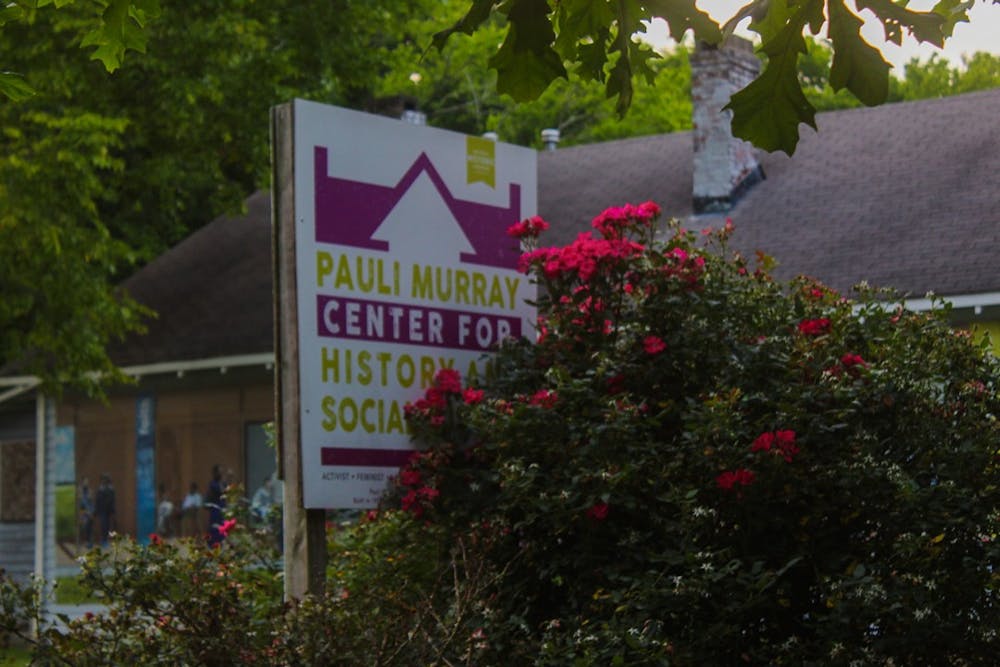“He was always such a great mentor to other queer folk who wanted to be out and make a difference,” Kleinschmidt said.
As Chapel Hill’s first openly gay mayor, Kleinschmidt said that he felt like he was returning an LGBTQ+ voice to the council after Herzenberg left office.
Mike Nelson was the first openly gay mayor in North Carolina and served in Carrboro from 1995 to 2005. Kleinschmidt followed suit in 2009 in Chapel Hill. Lydia Lavelle was elected as the first openly lesbian mayor in North Carolina, serving in Carrboro from 2013 to 2021.
Kleinschmidt acknowledged that progress for the local LGBTQ+ community could not have been achieved without the work done during the civil rights movement.
“Chapel Hill, Carrboro and Durham are places where there are also other people who have experienced oppression at the hands of majority groups,” he said. “Largely African American folk who have been instrumental in creating the identity of what Chapel Hill is today and what Durham is today — that have infused within our culture a sense of what justice means and that justice isn’t about just us.”
Durham
Pauli Murray was a nationally recognized Black queer activist, lawyer, scholar and priest who grew up in Durham in the 1910s.
They grew up with their extended family, the Fitzgeralds. The Fitzgeralds’ house, located on Carroll Street in the historically Black West End neighborhood, was a formative space for Murray.
“That house, and the experience growing up there, was a catalyst for their activism,” Torrianna Foster, the communications and programming coordinator at the Pauli Murray Center for History and Social Justice, said. “They learned everything that they knew about activism, about protesting, about emancipation, about human rights and even about justice in that house and with that family.”
Murray co-authored the amicus brief for the Reed v. Reed U.S. Supreme Court case, the first time sex discrimination was found unconstitutional under to the 14th Amendment, and published the 1956 book “Proud Shoes: The Story of an American Family,” a detailed account of their life growing up in Durham.
Although Murray’s activism and work took them elsewhere, the house remained in Durham.
The Pauli Murray Center, established as a nonprofit in 2012, is a historic site and future community center based out of the Carroll Street home, according to its website.
To get the day's news and headlines in your inbox each morning, sign up for our email newsletters.
Foster said the center will be an exhibit space where local artists, activists and community members can gather to learn about Murray’s legacy. During the pandemic, they held virtual activities, historic tours and outdoor events on the home’s lawn.
“This little known, but very powerful person, creates a space where Durham can be a rich center of activism,” Foster said.
Pittsboro
On June 11, the town of Pittsboro held its first-ever Pride event — including a Pride parade.
Pittsboro joined other rural communities, like Sylva and Wilson, that began hosting Pride events in recent years.
PBO Pride, a local organization that aims to create a safe and inclusive community for queer people living in Chatham County, hosted the parade at The Plant, an eco-industrial park on the east side of the town.
Mary Beth Clark, PBO Pride planning committee member, said the event saw over 1,000 people in attendance.
“We didn’t know how many people would attend,” she said. “We tried to advertise it as heavily as we were able, but we were thinking, you know, ‘How many people do you think will show up? Maybe, maybe 200? Maybe 300?”
From stilt walkers to a Japanese fire truck heading the parade, Clark said the event turnout was terrific and that the organization is looking to the future for what they can do for their local queer community.
“We’re really thinking about, ‘How can we best use this thing that we’re creating?’” she said. “‘What’s the best way to serve the community?’”
@DTHCityState | city@dailytarheel.com
Emma GeisEmma Geis is the 2023-24 copy chief at The Daily Tar Heel. She has previously served as a copy board member and summer copy chief. Emma is a fifth-year pursuing a double major in journalism and media and African, African American and Diaspora Studies.



